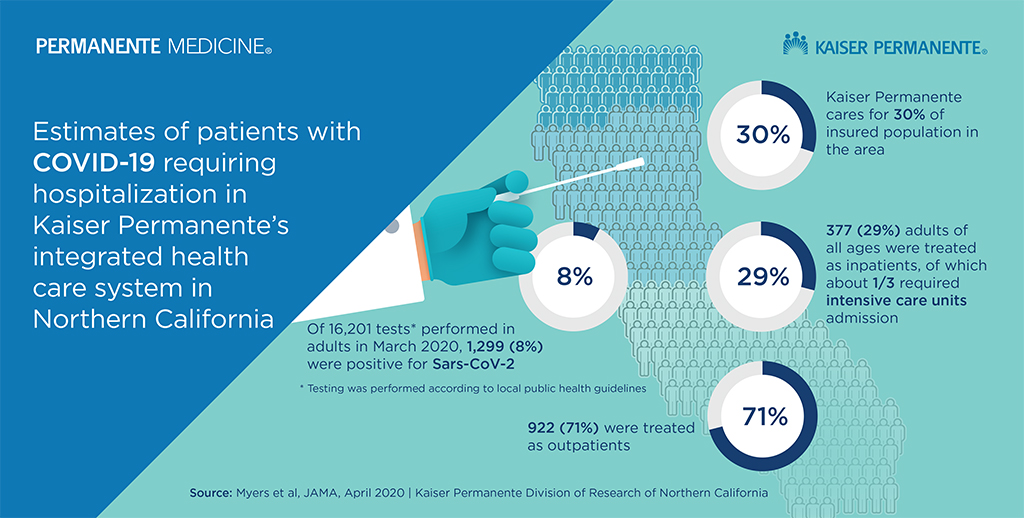Ramin Davidoff, MD, on value-based care and how it benefits older adults.
New Kaiser Permanente study provides information on coronavirus planning for health systems
A new Kaiser Permanente study of COVID-19 patients published today as a research letter in the Journal of the American Medical Association (JAMA) provides estimates for the percentage of test-positive patients requiring hospitalization and admission to the intensive care unit (ICU).
Of 16,201 tests in adults treated in 21 Kaiser Permanente Northern California hospitals, 1,299 patients (8%) were positive for SARS-CoV-2, the virus that causes COVID-19. Of these patients, 377 (29%) were treated as inpatients, and 113 (9%) were treated in the ICU.
Due to its high degree of integration and robust electronic medical records, Kaiser Permanente can provide insights into population-level phenomena that other health care systems cannot. As a result, these estimates can help other health systems plan resource needs during the current pandemic.
The authors also found that people who are being hospitalized with COVID-19 were in all age groups, rather than primarily the elderly, and that they did not necessarily have underlying health conditions. The findings underscore the importance of public health interventions that target the entire public, regardless of age and health status, in order to avoid surges in hospitalizations across the United States.
The study is one of the first published using data from the United States. The authors are with The Permanente Medical Group and the Kaiser Permanente Division of Research in Northern California, and include Laura C. Myers, MD, MPH, Stephen M. Parodi, MD, Gabriel J. Escobar, MD, and Vincent X. Liu, MD.
To read the entire research letter, visit the JAMA site.



